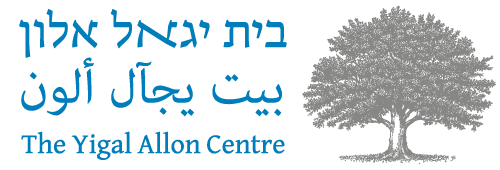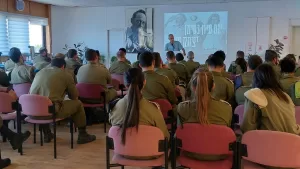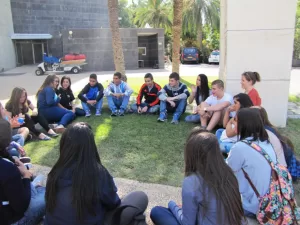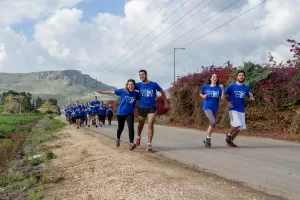The Yigal Allon Center Guiding Assumptions and Principles for A Shared society
- The Jewish and Arab populations in Israel live mostly in separate neighborhoods and settlements. Organizing activities that unite these communities and allow them to interact to foster unity and mutual understanding is vital. To experience firsthand how fear and suspicion can transform into trust and opportunity.
- A necessary condition for educational processes to effect desired social change is that they are ongoing, spanning years rather than occurring just once.
- Israel is a Jewish democratic country that ensures formal civil equality for all non-Jewish citizens. It sees itself as a liberal democracy that embodies the values of the Declaration of Independence. This process allows for a shared life with the non-Jewish minority. The sovereignty of the Jewish people in their country should be strong enough to enable a respectful and equal existence of the non-Jewish minority within it.
We offer different educational programs addressing the needs of diverse
populations. In addition, we collaborate with other individuals and organizations working together to construct a shared society.
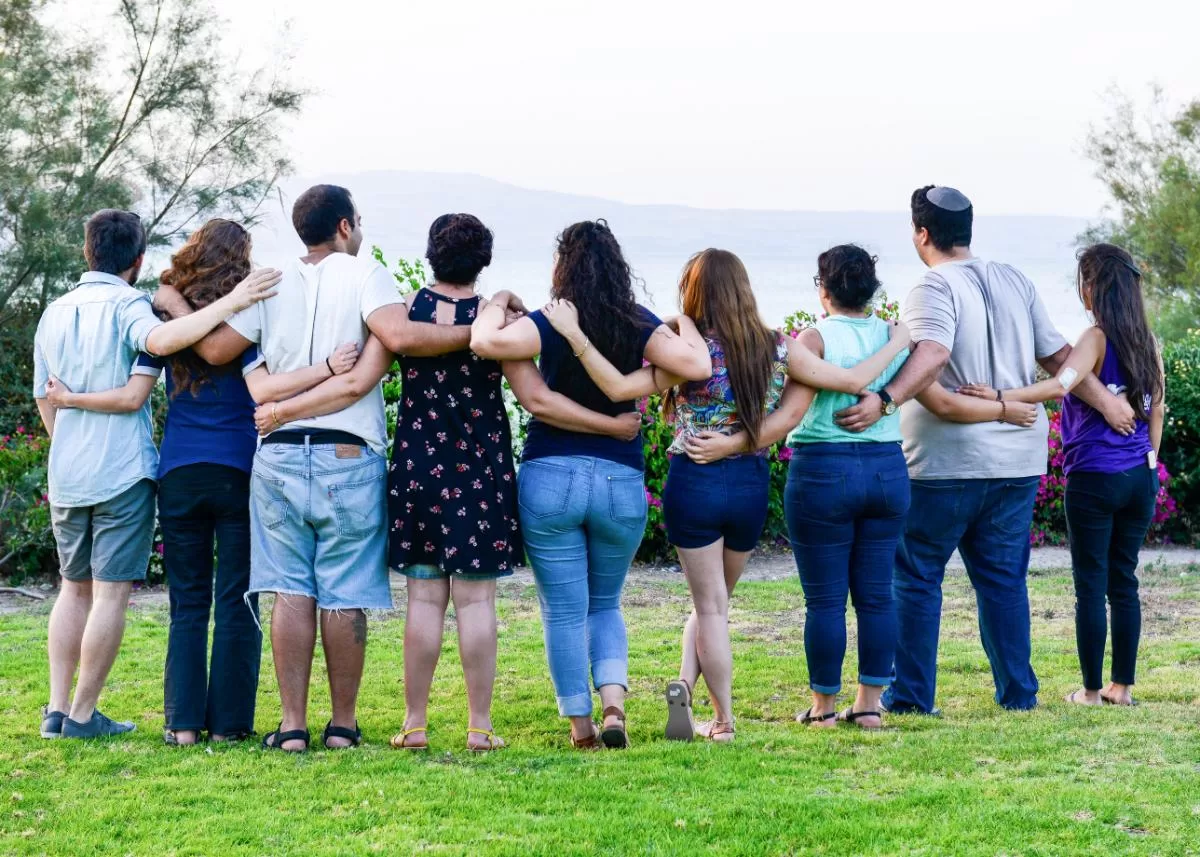

Spring Gatherings
In the Israeli reality, there is a significant lack of trust between the Jewish and Arab societies. The lack of trust is created, among other things, because of the meager number of opportunities for a substantial encounter with the other society. We see that it is in the power of such meetings to crack a significant opening, and thus step by step we will succeed in bringing about a shared, pluralistic and humane society. For the past 20 years, The Yigal Allon Center has been running the “Spring Gatherings” program – a program that brings together about 2,500 middle school students a year. Participants meet throughout the school year, lead a dialogue, learn about the culture of the other and at the height of the process create a joint artistic venture. The meetings are led by expert facilitators alongside members of the “Allonim” preparatory schools (a network of joint army preparatory residential programs – mechinot – for Arabs and Jews established by the Yigal Allon Center in cooperation with the Jewish Agency), thus creating both active volunteering and personal example of cooperation between the sectors.
Main Objective:
Building joint work teams, who see the value in diversity and use it to work together and jointly create works of art and a better and brighter future.
Objectives:
- Knowing and accepting the identity of the other while promoting a multicultural and pluralistic worldview.
- Discussion ‘about’ and construction ‘of’ a common Israeli identity, which is not contrary to the particular identity.
- Building a sense of self-efficacy for collaboration that will be expressed at its peak in a joint art project.
Method:
The program brings together junior-high students who are able, on the one hand, to grasp the complexities of such encounters and lead a dialogue about the difficulties and challenges of a shared society, and on the other hand sufficiently flexible and open-minded to the other. We see the meetings between the students as opening a window for acquaintance, removing fears and an opportunity for discourse. The activity is based on an educational, playful and artistic gathering in which the barriers fall and the students understand that we are all actually human beings, Israeli citizens who are partners in one society. In a reality where youth do not have the opportunity to meet with their there is value in creating an initial encounter within the school. We see that in the power of such an encounter to be a spark of curiosity and motivation to deepen the encounter and discourse in the future, and so by step by step we will succeed in battle and bring about a society that is common.
Filming a Joint Campus
The years in which students are within the walls of the university are critical years in shaping their identity as citizens of the country, their perceptions and values. The college campuses are sometimes the first meeting place between different parts of society, certainly when it comes to Arabs and Jews. Due to the primary nature of the meeting there is potential for explosiveness, alienation and hostility between the parties, but also an opportunity to create a respectful and inclusive discourse that leads to shared learning and mutual acquaintance. The “Fiming a Joint Campus” program was established to create this initial connection and partnership.
What We Offer
Out of a desire to bring Arab and Jewish students together The Yigal Allon Center initiated the “Filming a Joint Campus” program. The purpose of the program is to create a meaningful opportunity for meeting, dialogue, and acquaintance, which will lead to joint work on a photography project. The program will bring students together throughout the school year and touch on socio-cultural issues on the one hand and professional-artistic issues on the other. At the end of the program, a joint photo exhibition will be produced, which will be displayed once at the college and a second time at the Yigal Allon Center Museum.
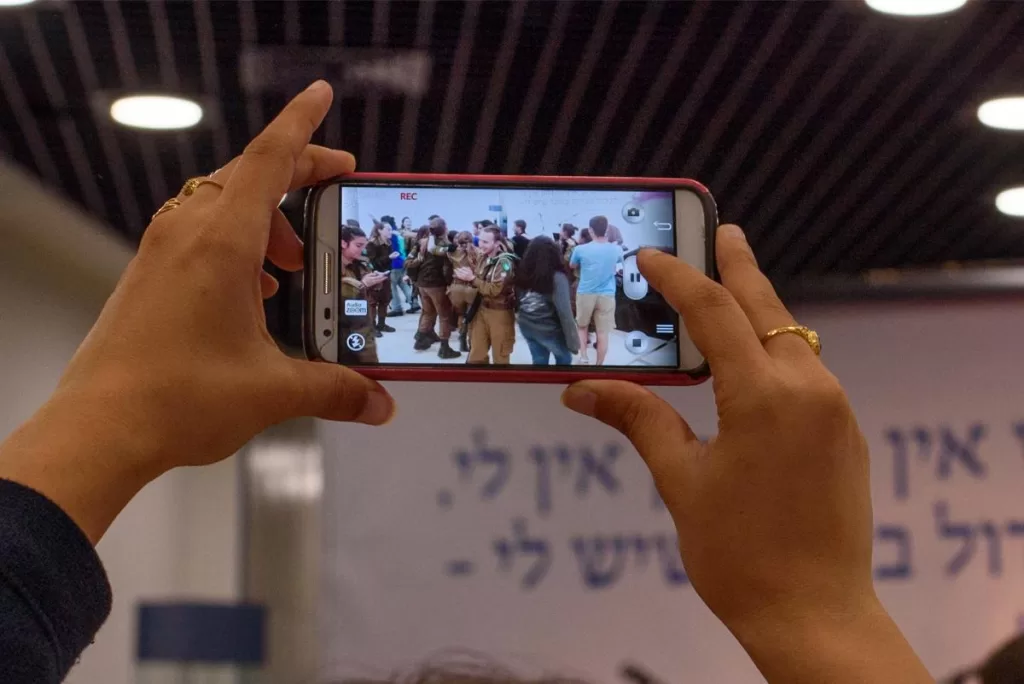
Meetings of Arab and Jewish Female High School Graduates
This program aims to unite two “distant” sectors: Jewish religious and Arab (Bedouin) high school graduates. The meetings focus on shared life experiences and aspects of identity, particularly their belonging to traditional and religious communities. The program also promotes conversation around these shared factors to eliminate stigmas and biases. It consists of several meetings throughout the year, including mutual hosting. Based on the occurrences in the meetings themselves, we plan to continue collaboration programs after the program’s end.
Entrepreneur Hothouse
The program operates in two anthroposophical schools: one in Harduf with predominantly Jewish pupils and the other in Sfar’am with only Arab pupils. The project runs year-round and is led by Arab and Jewish high school graduates from the Harduf leadership program. They receive training programs from the Yigal Allon Center. As part of the program, mixed teams collaborate on sustainability and ecology projects to bridge language and cultural barriers. At the end of the year, we host the Hacton, which is the program’s main event. It consists of two intense workdays during which the projects are presented professionally to a panel of judges and investors. The winning projects receive a development “nest” to help them bring their ideas to life.
Ancient Crafts by the River
The Yigal Allon Center, the Kinneret Rivers Authority, and River Keepers collaborate on the Ancient Crafts by the River program. This course brings together Jewish and Arab women from the north to train and learn ancient crafts. It provides an opportunity for mutual acquaintance, discussion, sharing, bonding, and bridge-building. The program is conducted in Hebrew and Arabic.
Kinneret Keepers
This multi-age project consists of three meetings and bonding activities while cleaning and maintaining beaches and rivers by the Kinneret. The course is for schoolchildren and adults and collaborates with local authorities and environmental organizations.
Student Councils Meeting
Student councils, established by Yigal Allon as Minister of Education, are essential for participating in the democratic process at school and experiencing the complexities of democracy and its pros and cons. The program includes training and elaboration of the student councils to develop personal and social resilience and strengthen social democracy awareness. One foot is planted in leadership programs, involvement and social responsibility, and the other is in meetings, bonding and conversations between Jewish and Arab students from the Galilee, the future leaders of Israel.
Adults and Senior Groups
Volunteer groups of regional residents in influential roles to assist various Galilee communities and lead a strategy for promoting civic and social development.
Help in gardening and renovation projects.
Teaching Hebrew to Arab children and youth and Arabic to Jewish children and youth.
Mutual hospitality during holidays.
Intense activities to promote second languages.
Joint trip to Poland to learn the history of the Holocaust.
Joint trips to villages from which the participants’ ancestors evacuated in 1948.
